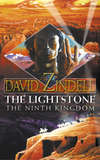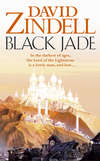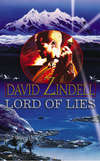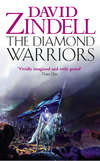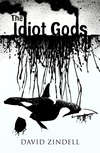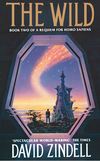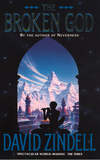Kitabı oku: «The Lightstone: The Silver Sword: Part Two»
The
Lightstone
Part Two: The Silver Sword
Book One of the Ea Cycle
DAVID ZINDELL

COPYRIGHT
This novel is a work of fiction. The names, characters and incidents portrayed in it are the work of the author’s imagination. Any resemblance to actual persons, living or dead, events or localities is entirely coincidental.
HarperVoyager An imprint of HarperCollinsPublishers Ltd. 1 London Bridge Street London SE1 9GF
First published by HarperVoyager 2001
Copyright © David Zindell 2001
David Zindell asserts the moral right to be identified as the author of this work
All rights reserved under International and Pan-American Copyright Conventions. By payment of the required fees, you have been granted the nonexclusive, nontransferable right to access and read the text of this ebook on-screen. No part of this text may be reproduced, transmitted, downloaded, decompiled, reverse engineered, or stored in or introduced into any information storage and retrieval system, in any form or by any means, whether electronic or mechanical, now known or hereinafter invented, without the express written permission of HarperCollins ebooks
HarperCollinsPublishers has made every reasonable effort to ensure that any picture content and written content in this ebook has been included or removed in accordance with the contractual and technological constraints in operation at the time of publication
Source ISBN: 9780007139965
Ebook Edition © AUGUST 2016 ISBN: 9780007387724
Version: 2016-09-01
DEDICATION
For Justine and Jillian
CONTENTS
Cover
Title Page
Copyright
Dedication
Maps
1
2
3
4
5
6
7
8
9
10
11
12
13
14
15
16
17
18
19
Keep Reading
Appendices
Heraldry
The Gelstei
The Greater Gelstei
Books of the Saganom Elu
The Ages of Ea
The Months of the Year
Acknowledgments
About the Author
Other Works
About the Publisher
MAPS


1
With a strong wind blowing at our backs, it took us only a day and a night of fast sailing to cross the Dragon Channel to Surrapam. There, the following morning, at Artram, the last of Surrapam’s free ports and therefore crowded with ships coming and going through its bustling harbor, we said goodbye to Captain Kharald and the Snowy Owl. After the horses had been led onto the dock, he stood by us telling of the news that had just been brought to him.
‘King Kaiman,’ he said to us, ‘is making a stand near Azam only forty miles from here. It seems our wheat is needed very badly.’
I watched the lean, hungry-looking Surrapam dockmen unloading the bags of wheat from the Snowy Owl’s holds. From nearby smithies down Artram’s busy streets came the sounds of hammered steel and the clamor of preparations for war.
‘Your swords are needed badly, too,’ he said to us. ‘Would you be willing to raise them against the enemy that you say you oppose?’
I remembered Thaman’s request to the Valari in Duke Rezu’s castle; in the months since then, I thought, it had gone very badly for his people.
‘Oppose the Hesperuk armies with this?’ I asked him, showing him the wooden sword I had carved.
‘Some,’ he said grimly, looking around at the desperate Surrapamers, ‘would fight him with their nails and teeth. But I think you have a better weapon than that piece of wood.’
The day before, when we had first returned to the ship, a chance gust of wind had whipped back my cloak, and Captain Kharald’s quick eyes had fallen on Alkaladur’s jeweled hilt. Since then, I had taken pains to keep it covered.
‘You haven’t told me what occurred on the island, and that’s your business,’ he said to me. ‘But it’s my business to help save the kingdom, if I can.’
Captain Kharald’s new conscience had changed the direction of his efforts but not their vigor: I thought he would pursue his new business with all the cunning and force that he had applied toward making money.
‘We failed to gain the Lightstone,’ I said to him as Kane prowled about the horses, checking their loads. The others stood near me awaiting their turns to say goodbye as well. ‘What more is there to tell?’
‘Only you know that, Sar Valashu.’
Because I hoped it might give him courage, I finally confided in him the story of my receiving the Bright Sword. He looked at me with wonder lighting up his hard, blue eyes. ‘Such a sword and a Valari knight to wield it would be worth a company of men. And with Kane and your friends behind you, a whole regiment.’
I smiled at this flattery, then told him, ‘Even a hundred regiments arrayed against the Red Dragon wouldn’t be enough to bring him down. But the finding of the Lightstone might be.’
‘Then you intend to continue your quest?’
‘Yes, we must.’
‘But where will you go? It won’t be long before the Hesperuk warships close the Channel.’
Kane, stroking the neck of Alphanderry’s white Tervolan, shot me a warning look. Although our journey lay to the east, we hadn’t yet decided its course.
‘We’ll go wherever we must,’ I said to Captain Kharald.
‘Well, go in the One’s light then,’ he told me. ‘I wish you well, Valashu Elahad.’
I wished him well, too, and so did the others. And then, after clasping Captain Kharald’s rough hand, we mounted our horses and rode north through Artram’s narrow streets.
The choice of this direction was Kane’s. Ever alert for enemies and Kallimun spies, he spared no effort in trying to throw potential pursuers off our scent. Artram was a rather small city of stout wooden houses and the inevitable shops of sailmakers, ropemakers and sawyers working up great spars to be used in fitting out the many ships docked in her port. There were many salteries, too, preserving the cargoes of cod and char that the fishing boats brought in from the sea. Most of these shops, however, were now empty, their stores having been requisitioned by King Kaiman’s quartermasters. In truth, there seemed little food left in the city, and little hope for defeating Hesperu’s ravaging armies, either.
Everywhere we went, we saw marks of woe upon the Surrapamers’ gaunt faces. It pained me to see their children eyeing our well-fed horses and full saddlebags. Like Thaman and Captain Kharald, they were mostly red of hair, fair of skin and thick of body – or would have been in better times. Though nearly beaten, they carried themselves bravely and well. I resolved that if I ever returned to Mesh, I would speak out strongly for helping them, if only by taking the field against the Red Dragon.
Maram surprised us all by stopping to pull off his rings one by one and giving them to various beggars who crossed our path. After slipping his third ring into the hand of a one-legged old warrior, Kane chided him for such conspicuous largesse. And Maram chided him, saying, ‘I can always get more rings, but he’ll never get another leg. I regret that I have only ten fingers, with ten rings to give.’
The afternoon found us a few miles outside of the city, in a region of rich black earth and once-prosperous farms. But the King’s quartermasters had come here, too. Smokehouses that should have been stuffed with hanging hams were empty; barns that should have been full of dried barley and corn held only straw. Most of the grown men having been called to war, or already laid low by it, the fields of ripening wheat were tended by women, children and old men. They paused in their labor to watch us pass, obviously wondering that an armed company should ride unchallenged through their land. But there were few knights or men-at-arms left to stop and question us – or to offer us hospitality. I thought that the widows and worried wives who nodded to us would have been willing to share all they had, even if it was only a thin gruel. The Surrapamers were as generous of heart even as they were sometimes greedy, like Captain Kharald. But that day, we didn’t put it to the test: we rode along in silence, exchanging nothing more than a few kind looks with those who watched us.
When we were sure that no one had followed us out of Artram, we turned east toward the mountains. Although the great Crescent Mountains were said to be very tall, we could not see even the tallest of their peaks, even though they lay only sixty miles away. Surrapam, it seemed, was a land of clouds and mists that obscured the sky – and sometimes even the tops of the trees pushing up into it. Master Juwain told us that here the sun shone only rarely. The Surrapamers’ pale, pink skin drank up what little light there was; their thick bodies protected them from the sempiternal coolness clinging like moistened silk to its lush fields. But we were not so fortunate. That day, a thin drizzle sifted slowly down through the air. Although it was full summer, and the height of Marud at that, its chill made me draw my cloak tightly around me.
And yet, despite the gloom, it was a rich, beautiful land of evergreen forests and emerald fields glowing softly beneath the sky’s gentle light. I could see why the Hesperuks might wish to conquer it. The farther we rode across its verdant folds, the more it seemed that we were journeying in the wrong direction. But three times that day I drew Alkaladur, and each time its faint radiance pointed us east. And east we must continue, I thought, even though great battles and the call to arms lay behind us.
We camped that night in a stand of spruce trees beside a swift-running stream. Its waters were clear and sweet, and full of trout, nine of which Alphanderry and Kane managed to catch for our dinner. Maram summoned forth a fire from some moist sticks, while Liljana set to with her pots and pans. It was the first time she had cooked a full meal for us since before Varkall.
We ate our fried fish and cornbread in the silence of those soft woods. We had cheese and blackberries for dessert, for these shiny little fruits grew abundantly in thickets along the roads we had ridden. By the time Master Juwain had brewed up a pot of Sunguran tea purchased in one of Artram’s shops, we were ready to discuss the journey that still lay before us.
‘Well, I had hoped the Lightstone might have come to Artram,’ Maram said as he patted his well-filled belly. ‘Though why I should have expected to find the Cup of Heaven in that sad little city not even the Ieldra know.’
I sat by the fire with my new sword unsheathed. Just to be sure that we had traveled in the right direction, I held it pointing toward Artram to the west. But the only light in its gleaming length came from the fire’s flickering orange flames.
‘No, I’m afraid it still lies east of us,’ Master Juwain said. ‘And I think it’s more than a coincidence that Khaisham lies directly along the line which Val’s sword has shown us.’
It was not the first time he had said this. Ever since the Island of the Swans, when it became clear that our journey might take us as far as Khaisham and the great Library there, he had continually gazed off in its direction with a new excitement in his usually calm, gray eyes.
‘I still don’t see how the Lightstone could be there,’ Maram said. ‘The Library has been searched a hundred times, hasn’t it?’
‘Yes, it has,’ Master Juwain told him. ‘But it’s said to be vast, perhaps too vast ever to be searched fully. The number of books it holds is said to be thousands and thousands.’
Kane, sitting by Alphanderry who was tuning his mandolet, smiled gleefully and said, ‘So, I’ve been to the Library once, many years ago. The number of its books is thousands of thousands. Many of them have never even been read.’
A new idea had suddenly come to Master Juwain, who sat rubbing his hands together as if in anticipation of a feast. ‘Then perhaps one of them holds the Lightstone.’
‘You mean, holds knowledge about it, don’t you, sir?’ Maram asked.
‘No, I mean the Cup of Heaven itself. Perhaps one of the books has had its pages hollowed out to fit a small golden cup. And so escaped being discovered in any search.’
‘Now there’s a thought,’ Maram said.
‘It’s as I’ve always told you,’ Master Juwain said to him. ‘When you open a book, you never know what you’ll find there.’
We talked for quite a while about the Library and the great treasures it guarded: not just the books, of course, but the numerous paintings, sculptures, works of jewelry, glittering masks studded with unknown gelstei and other artifacts, many of which dated from the Age of Law – and whose purpose neither the Librarians nor anyone else had been able to fathom. For Master Juwain, a journey to the Library was an opportunity of a lifetime. And the rest of us were eager to view this wonder, too. Even Atara, who had little patience for books, seemed excited at the prospect of beholding so many of them.
‘I think there’s no other choice then,’ she said. ‘We should go to this Library, and see what we see.’
I looked at her as if to ask if she had seen us successfully completing our quest there, but she slowly shook her head.
‘There’s no other choice,’ Master Juwain said. ‘At least none better that I can think of.’
And so, despite Maram’s objections that Khaisham lay five hundred miles away across unknown lands, we decided to journey there unless my sword pointed us elsewhere or we found the Lightstone first.
To firm up our resolve, we broke out the brandy and sat sipping it by the fire. This distillation of grapes ripened in the sun far away warmed us deep inside. Alphanderry began playing, and much to everyone’s surprise, Kane joined him in song. His singing voice, which I had never heard, was much like the brandy itself: rich, dark, fiery and aged to a bittersweet perfection – and quite beautiful in its own way. He sang to the stars far above us which we could not see; he sang to the earth that gave us form and life and would someday take it away. When he had finished, I sat staring at my sword as if I might find my reflection there.
‘What do you see, Val?’ Master Juwain asked.
‘That’s hard to say,’ I told him. ‘It’s all so strange. Here we are drinking this fine brandy – and it’s as if the vintner who made it left the taste of his soul in it. In the air, there’s the sound of battle, even though it’s a quiet night. And the earth upon which we sit: can you feel her heart beating up through the ground? And not just her heart, but everyone’s and everything’s: the nightingale’s and the wood vole’s, and even that of the Lord Librarian in Khaisham half a world away. It beats and beats, and there’s a song there – the same strange song that the stars sing. And truly, it’s a cloudy night, but the stars are always there, in their spirals and sprays of light, like sea foam, like diamonds, like dreams in the mind of a child. And they never cease forming up and delighting: it’s like Flick whirling in the Lokilani’s wood. And it’s all part of one pattern. And we could see the whole of it from any part if only we opened our eyes, if only we knew how to look. Strange, strange.’
Maram staggered over to me, and touched my head to see if I had a fever. He had never heard me speak like this before; neither had I.
‘Ah, my friend, you’re drunk,’ he said, looking down at Alkaladur. ‘Drunk on brandy or drunk on the fire of this sword – it’s all the same.’
Master Juwain looked back and forth between the sword and me. ‘No, I don’t think he’s quite drunk yet. I think he’s just beginning to see.’
He went on to tell us that everyone had three eyes: the eye of the senses; the eye of reason; and the eye of the soul. This third eye did not develop so easily or naturally as the others. Meditation helped open it, and so did the attunement of certain gelstei.
‘All the greater gelstei quicken the other sight,’ he said, ‘but the silver is especially the stone of the soul.’
The silustria, he said, had its most obvious effects on that part of the soul we called the mind. Like a highly polished lens, the silver crystal could reflect and magnify its powers: logic, deduction, calculation, awareness, insight and ordinary memory. In its reflective qualities, the silver gelstei might also be used as a shield against energies: vital, physical and particularly mental. Although not giving power over other minds, it could be used to quicken the working of another’s mind, and was thus a great tool for teaching. A sword made of silustria, he thought, could cut through all things material as the mind cuts through ignorance and darkness, for it was far harder than diamond. In fact, in its fundamental composition, the silver was very much like the gold gelstei, and was one of the two noble stones.
‘But its most sublime power is said to be this seeing of the soul that Val has told of. The way that all things are interconnected.’
Alphanderry, who seemed to have a song ready for any topic or occasion, sang an old one about the making of the heavens and earth. Its words, written down by some ancient minstrel long ago, told of how all of creation was woven of a single tapestry of superluminal jewels, the light of each jewel reflected in every other. Although only the One could ever perceive each of the tapestry’s shimmering emeralds, sapphires and diamonds, a man, through the power of the silver gelstei, might apprehend its unfolding pattern in all its unimaginable magnificence.
‘“For we are the eyes through which the One beholds itself and knows itself divine,”’ Alphanderry quoted.
And by ‘we’, he explained, he meant not only the men and women of Ea, but the Star People, the Elijin, and the great Galadin such as Arwe and Ashtoreth, whose eyes were said to be of purest silustria in place of flesh.
‘What wonders would we behold,’ he asked us, ‘if only we had the eyes to see them?’
‘Ah, well,’ Maram said as he yawned and drank the last of his brandy, ‘I’m afraid my eyes have seen enough of day for one day, if you know what I mean. While I don’t expect anyone’s sympathy, I must tell you that Lailaiu didn’t allow me much sleep. But I’m off to bed to replenish my store of it. And to behold her in my dreams.’
He stood up, yawned again, rubbed his eyes and then patted Alphanderry’s head. ‘And that, my friend, is the only part of this wonderful tapestry of yours I care to see tonight.’
Because we were all quite as tired as he, we lay back against our furs and wrapped ourselves with our cloaks against the chill drizzle – everyone except Kane who had the first watch. I fell asleep to the sight of Flick fluttering about the fire like a blazing butterfly, even as I rested my hand on the hilt of my sword, which I kept at my side. Although I dreaded the dreams the Lord of Lies might send me, I slept well. That night, in my dreams, when I was trapped in a cave as black as death itself, I drew forth Alkaladur. The sword’s fierce white light fell upon the dragon waiting in the darkness there, with its huge, folded wings and iron-black scales. Its radiance allowed me to see the dragon’s only vulnerability: the knotted, red heart which throbbed like a bloody sun. And in seeing my seeing of his weakness, the dragon turned his great, golden eyes away from me in fear. And then, in a thunder of wings and great claws striking sparks against stone, he vanished down a tunnel leading into the bowels of the earth.
The next morning, after a breakfast of porridge and blackberries fortified with some walnuts that Liljana had held in reserve, we set out in good spirits. We rode across fallow fields and little dirt roads, neither seeking out the occasional farmhouses we came across or trying to avoid them. This part of Surrapam, it seemed, was not the most populated. Broad swaths of forest separated the much narrower strips of cultivated land and settlements from each other. Although the roads through the giant, moss-hung trees were good enough, if a little damp, I wondered what it would be like when we reached the mountains, where we might find no roads at all.
Maram, too, brooded about this. As we paused to make a midmorning meal out of the clumps of blackberries growing along the roadside, he pointed ahead of us and said, ‘How are we to take the horses across the mountains if there are no roads for them? The Crescent Mountains, Val?’
‘Don’t worry,’ I told him, ‘we’ll find a way.’
Kane, whose face was so covered with berry juice that he looked as if he had torn apart a deer with his large teeth, grinned at him and said, ‘If we find the mountains impassable, we can always go around them.’
He pointed out that this great mountain chain, which ran in a broad crescent from the southern reaches of the Red Desert up Ea’s west coast through Hesperu and Surrapam, thinned and gave out altogether a hundred and fifty miles to the north of us in Eanna. We could always journey in that direction, he said, before rounding the farthermost point of the mountains and turning back south and east for Khaisham.
‘But that would add another three hundred miles to our journey!’ Maram groaned. ‘Let’s at least try crossing the mountains first.’
At this, Atara laughed and said, ‘Your laziness is giving you courage.’
‘It would give me more if you could see a road through the mountains. Can you?’
But in answer, Atara popped a fat blackberry into her mouth and slowly shook her head.
As we set out again, I wondered at the capriciousness of each of our gifts and the various gelstei that quickened them. Among us, we now had six; only Alphanderry lacked a stone, and so great were our hopes after my gaining Alkaladur that we were sure he would find a purple gelstei somewhere between Surrapam and Khaisham. Although Master Juwain brought forth his varistei with greater and greater frequency, he admitted that drawing upon its deepest healing properties might be the work of a lifetime. Kane, of course, kept his black stone mostly hidden and his doubts about using it secret as well. Liljana’s blue figurine might indeed aid her in mindspeaking, but there were no dolphins or whales to be found in Ea’s interior, and none among us with her talent. As she had promised to look away from the running streams of each of our thoughts unless invited to dip into them, she had little opportunity to gain any sort of mastery of her stone. As for Atara, she gazed into her scryer’s sphere as often as I searched the sky for the sun. What she saw there, however, remained a mystery. I gathered that her visions were as uncertain as blizzards in spring, and blew through her with sometimes blinding fury.
Maram’s talent proved to be the most fickle of any of ours – and the most neglected. Where he should have been growing more adept in using his firestone, he seemed almost to have forgotten that he possessed it. As he had said, his dreams were now of Lailaiu; at any one time, I thought, he was able to pour his passions into one vessel only. At the end of the day, after we had covered a good twenty-five miles through a gradually deepening drizzle, he tried to make a fire for us with his gelstei. But the red crystal brightened not even a little and remained dead in his hands.
‘The wood is too wet,’ he said as he knelt over a pile of it that he had made. ‘There’s too little light coming through these damn clouds.’
‘Hmmph, you’ve gotten a fire out of your crystal before with as little light,’ Atara chided him. ‘I should think the test of it is at times such as these rather than in waiting for perfect conditions.’
‘I didn’t know I was being tested,’ Maram fired back.
‘Our whole journey is a test for all of us,’ Atara told him. ‘And all our lives may someday depend on your firestone.’
Her words cut deep into me and remained in my mind as I fell asleep that night. For I had a sword that I must learn to wield – and not by crossing blades with Kane every night during our fencing practice. Although Alkaladur might indeed be hard enough to slice through the hardest steel, it had more vital powers that I was only beginning to sense. It would take all my will, I thought, all my awareness and concentration of my lifefire to find myself in the silvery substance of the sword and it in me.
Morning brought with it a little sun, which lasted scarcely long enough for us to saddle the horses and break camp. It began to rain again, but much of its sting was taken away by the needles of the towering trees above us. Here were hemlocks and spruce two hundred feet high, and great King Firs perhaps even higher. They formed a vast shield of green protecting against wind and water, and sheltering the many squirrels, foxes and birds that lived here. I might have been content to ride through this lovely forest another month, for its smells of mosses and wildflowers pleased me greatly. Soon, however, the trees gave way to more farmland, cut with numerous streams running down from the mountains. In this more open country, the rain found us easy targets, and pelted us with icy drops that streaked down through the sky like silver arrows. It soaked our garments, making a misery of what should have been an easy ride. By late afternoon, with the ground rising steeply toward the mountains’ foothills, we were all of us considering knocking on the door of some stout farmhouse and asking refuge for the night.
‘But if we do that,’ I said to my friends as we stopped to water the horses by a stream, ‘these poor people will have to feed us, and they’ve nothing to spare.’
‘Perhaps we could feed them,’ Atara suggested. ‘We’ve plenty to spare.’
Liljana cast her a troubled look and said, ‘If travelers came through the Wendrush offering food to their hosts, what would they think?’
‘Ha,’ Kane said, ‘if travelers came through the Wendrush offering food to the Kurmak, they’d likely be put to the sword for the insult of it.’
Although Atara didn’t respond to this remark about her people, her grim face suggested it might be true.
‘I have an idea,’ Maram said. ‘It’s time we began inquiring if anyone hereabouts knows of a road through the mountains. If anyone happens also to offer us shelter and also has enough food, we’ll accept. Otherwise we’ll ride on.’
It was a good plan, I thought, and the others agreed. We spent the next few hours riding from farmhouse to farmhouse, even as the rain grew stronger. But none of the Surrapamers knew of the road we sought. Most of them did offer us lodgings for the night, even though their sunken faces and bony bodies told us that this was an act of pride and politesse they could ill afford. It amazed me that they were willing to succor us at all, for we were strangers from distant lands of which few had heard; we were girt for war and riding across their fields at a time when many of their kinsmen had been taken by war – and many more might soon be. I thanked our stars that all their knights and warriors had ridden off, and so left these brave people little more than goodwill, and faith in our goodwill, with which to face us.
But as the day faded toward a gray, rainy evening, it seemed that I had given my thanks too soon. Just after we had knocked on the door of yet another farmhouse, a company of armed men came thundering down the road from the east and turned onto the farm’s muddy lane. There were twenty of them, and they all wore rusted mail with no surcoat to cover it or identify their domains or houses. Shabby knights they seemed, and yet their lances appeared sharp enough and their swords ready at hand. Although they were quite as gaunt as the rest of their countrymen, they sat straight in their saddles and rode with good discipline.
‘Who are you?’ their leader called out to us as his large war horse kicked up clots of mud and came to a halt ten yards from us. He himself was a large man, with a thick gray beard and braided gray plaits hanging down from beneath his open-faced helmet. ‘What are you doing in our land?’
The door of the house having been shut behind us, I stood by Altaru as he stomped about and eyed this man’s horse ferociously. My companions had already mounted their horses; Atara was fingering her strung bow while Kane cast his black eyes on the men before us.
I gave the knight our names, and asked him his. He presented himself as Toman of Eastdale; he said that he and his men had been riding off to join King Kaiman at Azam.
‘We’d heard there were strange knights about,’ Toman said, studying my surcoat and other accouterments. ‘We were afraid you might be Hesperuk spies.’
‘Do we look like spies?’ I said to him.
‘No, you don’t,’ he admitted graciously. ‘But not everyone is who they seem. The Hesperuks haven’t won half our kingdom through force of arms alone.’
I pulled myself on top of Altaru and patted his neck to steady him. To Toman, I said, ‘We’re not Kallimun priests, if that’s what you’re thinking.’
‘Perhaps not,’ he said, ‘but that is for the King to decide. I’m afraid you’ll have to lay down your arms and come with us.’
At a nod from him, four of his knights rode up by his side with their lances held ready. Toman looked from Atara to Maram and then back at me. ‘Please give me your sword, Sar Valashu.’

